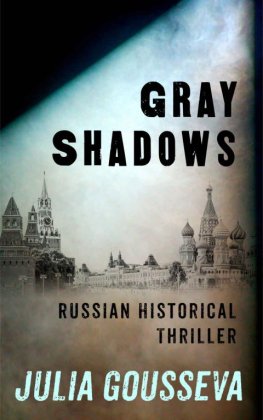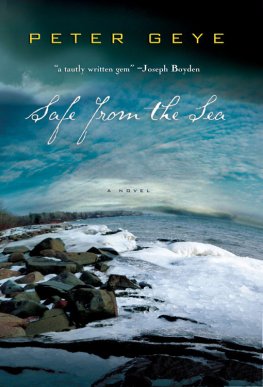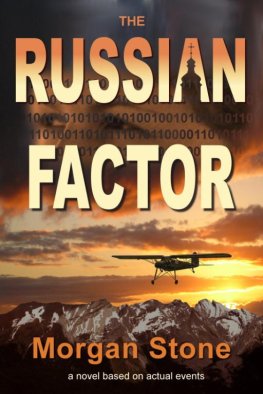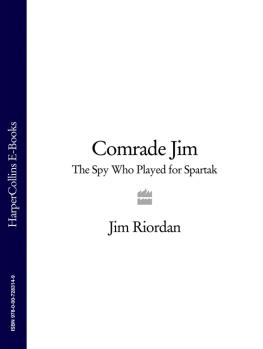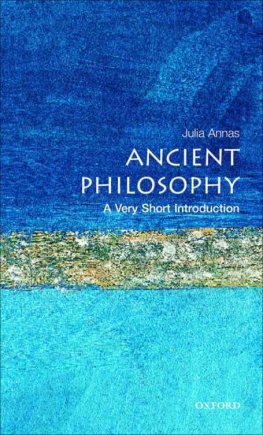Jim McIntyre
NIKOLAI THE PERFECT
FOR MY MOTHER JOAN McINTYRE

The novel describes actual historical events, such as the collapse of the Soviet Union and ensuing coup and counter-coup. For narrative purposes I have taken some minor chronological liberties. I am grateful to several native Russian speakers who guided my research, and set me straight on cultural authenticity. Lee Kofman in particular, for picking up misspellings of Russian names and pointing out some other inaccuracies.
Russian transliterations are contestable. For the most part I have gone with the variants that have come into wider English use. For example, Anna Karenina, the currently accepted title of Tolstoys classic Alexandrovna rather than the traditional Aleksandrovna, keeping in mind that Alexander Gardens, a landmark near the Moscow Kremlin, and the cruise ship Alexander Radishchev feature in the work.
Any mistakes are mine.
ST VINCENTS HOSPITAL, MELBOURNE
NOVEMBER 1994
Nikolai, you will be the best of us.
Will be because right now you are a dancing avatar on an ultrasound screen at St Vincents Hospital, Melbourne of all places. Pure potential. An antipodean Nureyev, Anna is hoping. My feathery blond curls?
Whose genes will prevail? Annas Id say, going by this performance. She faces the screen, her hand making tender circling movements over her stomach, tracing the probe. She is within touching distance but if she was still in Moscow she could not be further away. I sit in the corner, superfluous to the proceedings as if it is I and not you who is the disembodied presence here. The sonographer asks Anna questions. She replies in competent English. I interrupt once when she stumbles; otherwise it is a conversation between women, for women. Perhaps this is why her adopted language excels itself.
Your head, white globe attached to spongy torso, fills the screen, pointing down as it should. Arms spasm, quirky animation in jump cuts. Artful pause, mustered concentration, limbs disarticulated bubbles in a bathtub. A tadpole kick propels you sideways and out of focus. The sonographer fiddles with the controls primeval soup again that sugar-ant cranium. For a horrible second you are impaled on placenta your fists batter protest once more you dissolve free
The sonographer rolls back the sleeve covering her wristwatch. The show is over. I let go my dreams, having witnessed your power. For I can no more commune with you than pluck you from the womb.
TARUSA, RUSSIA (USSR)
JUNE 1990
June exodus when half the city heads for their summer houses, sees Moscow in rare good temper. A tenuous motorists democracy.
Banged-up Boris cuts across the buffed flanks of Zils and Volgas. Their horn exchanges banter without malice. A combination communism so seldom delivers a queue that discharges itself and a result worth the wait.
I downshift to first, creep towards the lights, Boris snorting noxious gusts from under the bonnet. A bottom-of-the-range Lada, Boris was a present to myself to celebrate my secure employment at my fathers English language institute. Anna was is furious and I dont blame her. I should have acquired a genuine asset, buffer against hyperinflation, even shares in a pyramid scheme, over a bald-tyre stumblebum. Boris for its namesakes celebrated state visit to Germany when he broke away from a guard of honour, stumbled onto the dais, seized the conductors baton and attempted to lead the band himself.
Boriss brakes squeal on metal, both rear-vision mirrors flip askew when setting off and the carburettor splutters at temperatures below ten degrees.
One hundred and thirty kilometres to my parents dacha near Tarusa, collecting them en route is a stern test. Boris is acquitting himself well apart from stalling, then jumpstarting at one intersection and almost crunching a blue Aleko in front. Nursed through city traffic he clacks along at a steady half-pace, allowing me stealthy glances at my three passengers. Anna is beside me, hair billowing in the slipstream. My father Sergey behind her, copper mane almost preposterous on a man of late middle age. My mother, Teresa, in her customary black despite the heat, stiff weight on my fathers shoulder, frizzed hair fanning the open window. Over the years shes replaced speech with body language, whole sentences compressed to a twitch. She turns to the window as if away from something unpleasant. At the next intersection I crane forward, fiddle with the driver-side reflector. My fathers hand is resting on Annas elbow. Annas face registers nothing. Quicker than salmon in whitewater she shimmies loose, flicks me an eye roll via the mirror.
The lights turn green. Boriss engine skips and cuts out. He eases into his tyres as into a favourite divan. I twist the key, pump the accelerator twice. First a gentle jab, then pedal to the floor. Boris hiccups. A black Volga behind honks.
My father leans forward. Wait a few seconds, or youll flood it. Okay, ignition, then your foot down. There got it! Dont accelerate just yet. A touch more now were away.
My father relaxes his big frame. My mother folds her hands in her lap as Boris twangs over potholes. Swivelling around to adjust the interior mirror, I catch my mothers eyes narrowing and turning again towards the window. My fathers roving hand has resumed its place.
I feign interest in the cloud cover a porridgy consistency too high for rain. Towers pierce the underdrifts, thin out beyond the Outer Ring Road, Moscows notional perimeter. Rashes of cone-roofed houses, country fortresses for apparatchiks turned arms barons, spread across the remnants of what only three summers before was intact forest. Pylons hem the remaining fir copses. Their survival seems a haphazard and temporary reprieve, a minor oversight.
Boris jiggles over undulations, hauls up a crest, coasts into Tarusa. Sunlight blazes through the windscreen, sparkling off scaffolding around a church, its cemetery adjacent. Not so much the church itself in atheism my father and I find rare unanimity against our devout womenfolk rather its surrounds lift my spirits; whorls of wooden latticework on cottages, fields falling away to a hazy lake.
Past Tarusa the road turns rutted clay, ochre slashes across a drained swamp. Families in duck formation patrol the embankment for bluebells. A lone optimist fishes a reed-fringed pond he can lie across. Our dacha telescopes into view down an avenue of birch.
My father leaps out first. He places four wicker baskets in the grass, sets his aside, winds trouser-protecting rags round his calves. Whos for mushrooms? Anna, youre with me. You two up for it? Without waiting for an answer, he picks up his basket and shambles off towards the forest, hurdling swatches of weed. Anna dons rags and scarf, trots after him. Spruce swallows them clean as a wave.
My mother remains in the car, steps into galoshes. Her face has an unfamiliar expression, at once wry and conspiratorial.
Trust your father to team up with the best picker. For a hundred million other people mushrooming is a family ritual celebrating the beginning of summer. No such luck with us Kurguzikovs. Everythings a competition.
She doesnt ask for much, my mother. Its not just her conversation thats shrunk. Her frizzy hair, once gossamer-smooth, darker and longer than Annas, is bad shampoo plus neglect. Mushrooming used to be an occasion when she could slough off the downtrodden housewife, roam untrammelled, sometimes alone with me, show me where to forage. My father and I would help her fry dinner. We shared twilight on the verandah. Then along came Anna.


